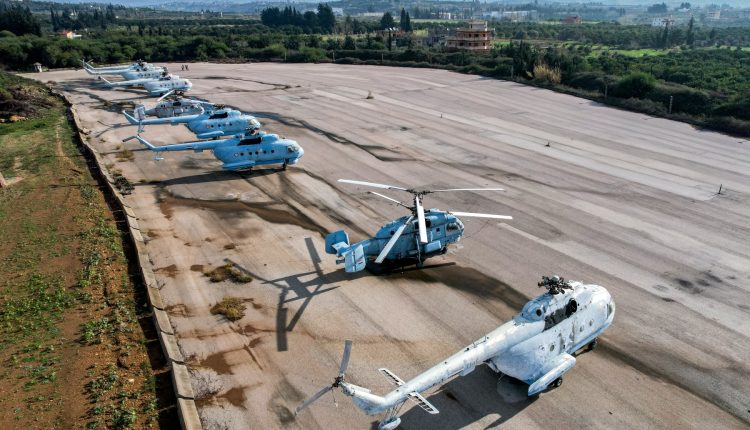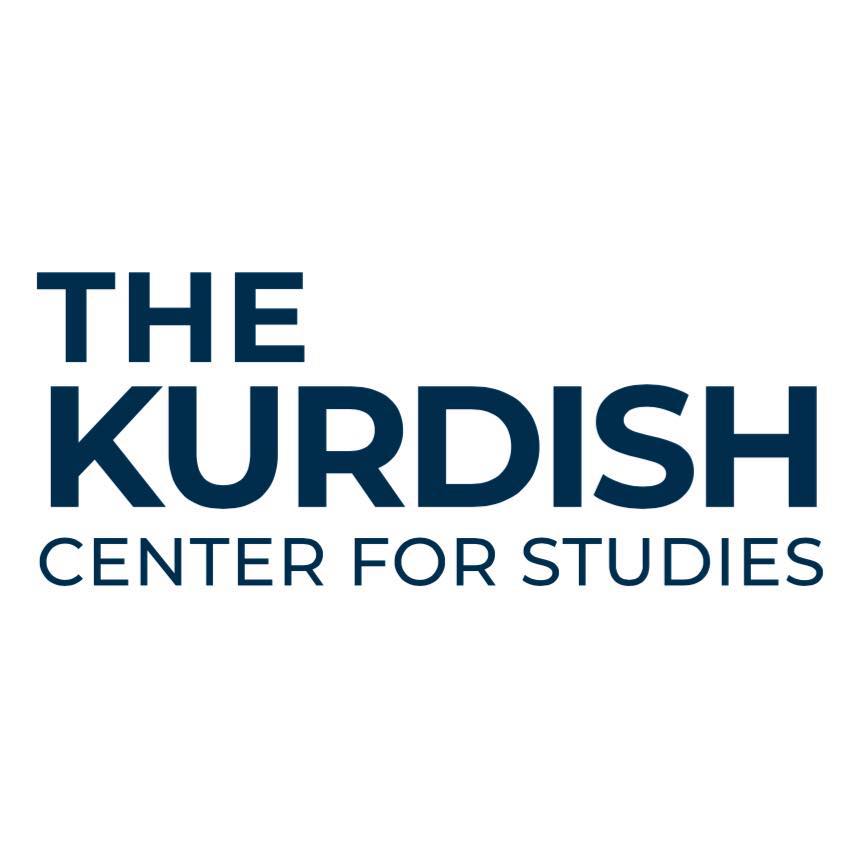Will Turkish “Military Bases” Language Succeed in Controlling Syria?
By The Kurdish Center for Studies
The fall of Bashar al-Assad’s regime contributed to strengthening Turkish aspirations within Syria. Whether the military presence is based on the principle of “de facto” or direct occupation under the pretext of protecting national security, the ability of Hayat Tahrir al-Sham to seize control of most Syrian cities previously held by the deposed regime prompted the Turkish government to enter into contracts to reactivate and rehabilitate certain airbases or establish new military bases. The issue of these bases has occupied an important part of the discussions between Ankara and Damascus. Turkey has capitalized on the weakness of the interim government and its growing influence within the Ministry of Defense through pro-Turkish militias integrated as factions within the ministry. Additionally, Turkey’s geographical proximity, its previous presence prior to Assad’s fall, and its occupation of parts of northern Syria have further cemented its position. Moreover, there is a growing need for Ahmad al-Sharaa’s government for an external protective shield, similar to the Russian and Iranian support provided to Bashar al-Assad’s regime.
In this context, the issue of Turkish military bases has emerged, aiming to influence Syrian political and economic decisions while shaping the contours of a new Turkish hegemony in the region. However, this may clash with the regional interests of Israel and several Arab countries and could contribute to further destabilization of the regional order. This implies that replacing Iranian influence with Turkish influence may lead to a new round of diplomatic, political, and possibly military confrontations among competing powers over Syria.
Turkish Perceptions of Military Co-operation
The meeting between al-Sharaa and Erdogan in early February sparked a number of expectations regarding the anticipated military cooperation between the two countries. This cooperation is expected to include establishing additional military airbases in Syria, securing access to Syrian airspace, and assuming a leading role in training the new Syrian army (1).
According to Turkish military sources quoted by the Hurriyet newspaper, military and defense agreements are set to be signed between Ankara and Damascus with the aim of enhancing security cooperation (2). The periodic visits by Turkish military delegations and intelligence staff to Damascus reflect the seriousness of Turkish officials and their desire to accelerate the process of undertaking the tasks of training the Syrian army, rehabilitating military airports, and reserving an important military role in Syria.
Reports indicate that Turkey plans to establish multiple bases to serve the Turkish Air Force, leveraging the infrastructure of Syrian airports in the Tadmor region. Additionally, Turkey has relocated troops and military equipment to Mannagh military airport, situated approximately 35 kilometers north of Aleppo, which is currently operating under Turkish-Syrian cooperation. The recent renovation and expansion of this base, coupled with the installation of radars, air defense systems, and additional equipment, suggest that Turkey is preparing to play a more significant military role in Syria.
This activity at Mannagh Airport may be the first step towards increased direct Turkish military intervention on Syrian territory. It could also signal Turkey’s long-term intentions in the region (3) and its commitment to expanding its influence in Syria.
In fact, the process of building Turkish military bases does not solely involve airports and focus on central Syria; the northern part of Syria is witnessing frantic operations to establish bases in a semi-secret manner, without generating media attention. This contrasts with discussions regarding military airports and Turkey’s intentions to control central Syria and the Badia region. The Syrian Democratic Forces (SDF) have stated that the Turkish army is seeking to build new bases in areas south and east of Manbij and around Kobani. They reported that the Turkish army is secretly transferring military vehicles and supplies at night to establish new bases on Qara Qozak Hill, along the western bank of the Euphrates River, and in the village of Hassan Agha, southeast of Manbij (4).
All of this is occurring amidst the Damascus government’s silence regarding developments in the north. It also indicates that the approach to building military bases is proceeding in two directions: de facto, as seen in northern Syria, where the SDF claims to have reached dozens of military bases and sites, or through bilateral agreements and contracts for operation, rehabilitation, training, and other technical agreements.
Syrian Ramstein: The Syrian Badia—Ankara’s Focus
It seems that Turkish efforts are primarily focused on the Syrian Badia, for reasons that go beyond military aspects to economic goals linked to controlling energy lines and pipelines and asserting direct influence over Syrian oil and gas sectors in the future.
An intelligence official from the region, a Syrian security official, and a foreign security source residing in Damascus stated that discussions between Turkish and Syrian officials will include the establishment of two Turkish military bases in the Badia region of Syria (5), known as Badia al-Sham, located in central Syria. Meanwhile, Turkish media reported, citing Reuters, that the Syrian interim government has granted Turkey a sovereign military base in Palmyra, which would be the size of the Ramstein base in Germany. Ankara has informed all major powers, including the United Nations, and announced that any attack on it would be met with force (6).
The primary goal of establishing the bases in central Syria, alongside controlling the military scene in Syria, is to manage energy lines. According to Turkish Energy Minister Alparslan Bayraktar, long-term cooperation could lead to the creation of new oil and gas pipelines connecting Syria to Turkish export stations (7). The minister expressed optimism that the fall of Assad would revive a long-frozen pipeline project linking Turkey and Qatar through Saudi Arabia, Jordan, and Syria. Turkey has sought to implement the project to reduce its dependence on Russian gas and enhance its ambitions of becoming an energy hub, but Assad rejected it due to Russian opposition.Beyond that, Ankara aims to leverage the energy card to win over the Europeans. Additionally, Turkey’s endeavor to safely access Arab oil and gas through Syria serves two purposes: it establishes Turkey as an energy hub and reduces its dependence on Russian gas (8). Here, the importance of military bases in the Syrian Badia and central Syria emerges as a crucial link in any energy-related projects. Moreover, the existence of a military base in Palmyra directly impacts the oil extraction process in the nearby region, particularly in Deir ez-Zor, which means that Turkey seeks to oversee this entire sector.
The Clash of Turkish-Israeli Interests
The rapid fall of the Assad regime plunged the region into an atmosphere of uncertainty, particularly because it led to the emergence of a new administration whose commitment to renouncing its jihadist past remains unverified. However, the international opportunities afforded to the Sharaa administration suggest that the new regime could become viable, provided it adheres prudently to suitable regional and international policies.
One significant issue that emerges is the Sharaa government’s management of the conflicting Israeli and Turkish interests in Syria. While Turkey has been a reliable ally of Israel, with excellent trade and military relations, the performance of the Turkish government following the events of October 7 indicates a disturbance in the balance of the relationship between the two countries. This shift suggests an increasing competition for regional presence, as Israel seeks to establish a new regional system to inherit Iranian influence, while Ankara aims to solidify its role at the heart of the regional landscape.
The factors at play are further complicated by the arrival of Donald Trump into governance and the unique chemistry between the Turkish and American presidents. This dynamic could pave the way for new opportunities for Turkey, reminiscent of the initial Trump administration, when Turkish military influence expanded in Iraq, Syria, and Libya, and the “Blue Homeland” doctrine gained momentum.
Moreover, the increasing Turkish influence in Syria correlates with Trump’s personal perspective on the future of Syria. The nature of the Sharaa administration appears to lean towards seeking refuge under the military umbrella provided by Turkey, particularly in light of the internal crises it faces, including the weakened “military institution,” which requires external support to transition from its current fragmented state to something resembling a regular army.
Tel Aviv took precautions against what it termed the “Turkish threat” early on. According to the Jacob Nagel Commission report, Israel must prepare for a direct confrontation with Turkey, warning that Turkey’s ambitions to restore its Ottoman influence could escalate tensions with Israel (9), potentially leading to conflict. Israeli intelligence assessments, partially revealed in February 2025, caution that Turkey may exploit its influence to arm anti-Israeli proxies. An Israeli defense official told the Times of Israel, “Ankara’s vision for Syria is incompatible with our security needs; it is a recipe for instability.”(10)
As part of its security plan, Israel occupied the Syrian portion of Mount Hermon and expanded its occupation in the Quneitra and Daraa governorates. Additionally, it has conducted airstrikes on Syrian military capabilities in various locations across the country, including raids on military positions in the Syrian Badia, specifically in the Palmyra area. These actions may signal Tel Aviv’s rejection of any future military initiative aimed at controlling central Syria.
In addition to unilateral actions within Syria, Tel Aviv is bracing for potential worst-case scenarios, particularly regarding the Syrian coastal strip and the risk of Turkish influence extending into it. Consequently, Israeli officials have communicated with their U.S. counterparts in Washington and representatives from Congress in Israel to advocate for a policy that preserves the Russian naval facility in Tartus and the airbase in Hmeimim, to prevent Turkey from solidifying its control over post-Assad Syria. Senator Lindsey Graham remarked during a hearing in March, “If the Russian bases keep Turkey in check, that’s a trade-off worth considering.” (11)
Voices in Washington appear to support the notion that restoring Russian influence along the Syrian coast hinges on two main ideas: preventing the disruption of NATO if Turkey engages in activities that concern Israel while turning Russia into a third party capable of counterbalancing Turkish assertiveness, and alleviating anxieties in Tel Aviv about continuing to pressure Washington in a manner that might embarrass the U.S. administration, which is reluctant to tighten its grip on the Turkish government.
Possible Outcomes
Ankara may not be able to leverage internal Syrian factors conducive to asserting control over the Syrian landscape through military cooperation due to Israeli opposition to such a scenario and the potential return of Russia to the Mediterranean shores, supported by understandings with Washington and Tel Aviv. Additionally, Turkish military expansion and the establishment of bases may not reassure Arab parties eager to avoid replacing Iran with Turkey, particularly in the case of Saudi Arabia, which is seen as a key backer of the post-Assad regime. Furthermore, neighboring Arab nations are concerned about a dominant Turkish presence that could later intervene in their internal affairs.
Ankara might have to scale back many of its ambitions in Syria due to a highly complex array of regional and international factors, even if it wants to convince Europe and some Arab states of its ability to secure and oversee energy lines through its ports or Syrian ports. All of this could lead Turkish calculations to shift significantly, moving away from government propaganda, especially given the turbulent internal situation the government is currently experiencing.




Comments are closed.